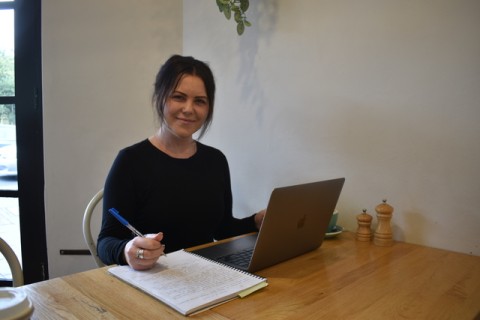
Melanie Riley
A MOUNT Gambier/Berrin counsellor has welcomed the introduction of a $330,000 tender that will enable up to 100 eligible school students to access autism assessments at no cost to their families.
Autism assessments will now be made easier with the initiative, which follows the introduction of the Autism Inclusion Teacher program, which has already seen an investment of $28.8 million to provide access to an autism inclusion teacher in every public primary school, including Reception to Year 12 schools.
The assessments are first being trialled in schools in North Adelaide, with a focus on students from low socio-economic backgrounds, students at risk of being disengaged from education and those currently awaiting assessment through the public system.
The assessments will have the flexibility to be able to be delivered on school grounds, to further assist with potential barriers families may face, including unfamiliar clinical environments, cost and wait times.
Counsellor and owner of Stepping Stones Wellbeing Karmyn Smith said she was confident the trials would be successful, and hoped it would mean a further roll out throughout South Australia in the future.
“I am sure that with the positive impacts it will have in the city, that this will then be something the government will take a look at and say ‘this is the direction we need to take,’’ Ms Smith said.
“The impact on our regional communities would just be huge.
“I’m sure that if it’s successful – and I know it will be – that it will eventually trickle down into our systems.”
Ms Smith praised South Australian premier Peter Malinauskas and the SA government for the work already being done for children with autism spectrum disorder, and said the benefits for children in regional areas like those in the Limestone Coast had a flow on effect that would have a huge positive impact on children and their families.
“It will be able to help those families to be able to get those diagnoses for their children earlier, and what that will then also do is be able to do those early interventions that parents cannot afford to do without a diagnosis,” she said.
“To get speech pathology or occupational therapy support here in a regional community with no diagnosis is a parent’s out of pocket expense.
“What this will do, is be able to help those families get a diagnosis done, so then they can make that next step for NDIS.”
2023 data from the Disability Insurance Agency (NDIA) suggests 1 in 25 of seven- to 14-year-olds have a primary diagnosis of autism spectrum disorder.
“When you’re looking at those numbers and you look at the average number of students in a class, you’re looking at having at least one child in the classroom as having autism spectrum disorder as a primary diagnosis,” Ms Smith said.
“Putting programs like this will actually increase the amount of children that are diagnosed.”
Ms Smith said not only would assessments then give parents the opportunity to explore a potential diagnosis, but would help teachers provide more tailored support for children.
“Autism is not just one diagnosis, a majority of the time, it’s made up of comorbidities,” she said.
“Therefore, you’ve got speech delays, you have social deficit delays, you have sensory processing disorders, you have auditory processing.
“These are just some of the challenges autistic individuals face.
“If the families don’t know where to go and best support their children, some families can get overwhelmed with not knowing where to go to get support.”
Ms Smith said the education around neurodivergence was important, and early intervention was key.
“Having a pilot program like this is actually going to promote inclusive understanding,” she said.
“You will be so surprised at how many children will be on the spectrum and there’s so many more out there but parents can’t afford it or wait times are so long.
“So these children have got a better chance of getting help and support.”
Ms Smith hoped the education would also flow onto other neurotypical students, to help support their understanding further of their neurodivergent classmates.
Ms Smith said neurodivergence can present differently in girls, and said the social conditioning women face to be accepted often lead to a later diagnosis.
“We’re neurodivergent trying to fit into a neurotypical world,” she said.
“We know that the consequences of not fitting in means that we’re going to have social isolation and that’s massive for girls, it’s everything for them.
“They build their whole foundations on their social connections.
“Every child is different, and every form of behaviour is a form of communication.”
Ms Smith was looking forward to seeing the positive impacts of the trials in Adelaide’s northern suburbs.
“These sorts of programs are going to help identify the need and I really hope the evidence is strong enough there to bring it down here.”
The program will be funded over a minimum 25-month period with children and young people to be referred for assessment from June 2024, and eligible organisations are encouraged to apply for the new tender. The announcement of the tender also comes as the state government recently launched the roll out of the State’s First Autism Inclusion Charter.
The Autism Inclusion Charter contains 4 guiding principles that will underpin a whole-of-government approach to improving life outcomes for Autistic people while also enabling a more knowledgeable and inclusive state where Autistic and autism communities can thrive with opportunity, support, connection and belonging.
from https://borderwatch.com.au/news/2024/05/19/hope-for-autism-assessments-in-schools/